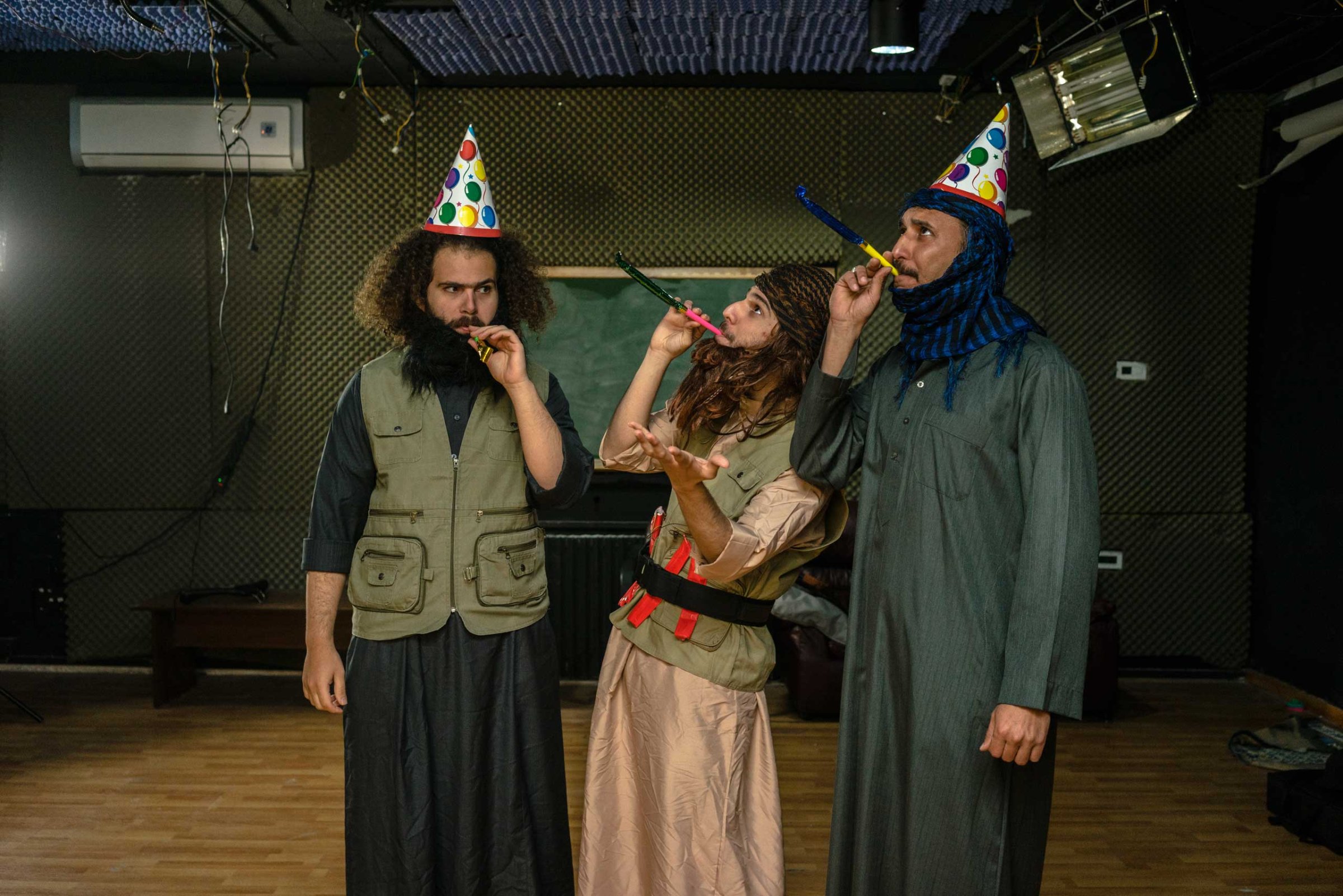
In a basement in the Jordanian capital of Amman, three young men are arguing over whose turn it is to kill their next victim. Wearing explosive vests and flak jackets over their robes, the men re-emerge with party hats, singing “Happy birthday to ISIS,” as the studio audience of Iraq’s leading online satirical news series, the Al-Basheer Show, roars with laughter.
There isn’t usually a whole lot to laugh about when it comes to the Islamic State of Iraq and Greater Syria (ISIS), the extremist group that has committed countless atrocities in its march to power—and attracted tens of thousands of foreign fighters in part by broadcasting those same atrocities. But while Western and regional governments scramble to drive back ISIS, young Arabs have found their own way to counter the group’s propaganda: comedy.
“Making fun of the enemy is the best way of defeating them,” says Ahmad al-Basheer, the 30-year-old host of his namesake show, which has racked up more than 26 million views online since it began broadcasting in April 2014. The Al-Basheer Show is one of many such parodies that have flourished in the Middle East, where millions of Muslims have grown increasingly outraged by ISIS’s theology. The ridicule comes in various forms—television shows, plays, cartoons and songs—but they share the same message: for all its claims to the contrary, ISIS is not Islamic.
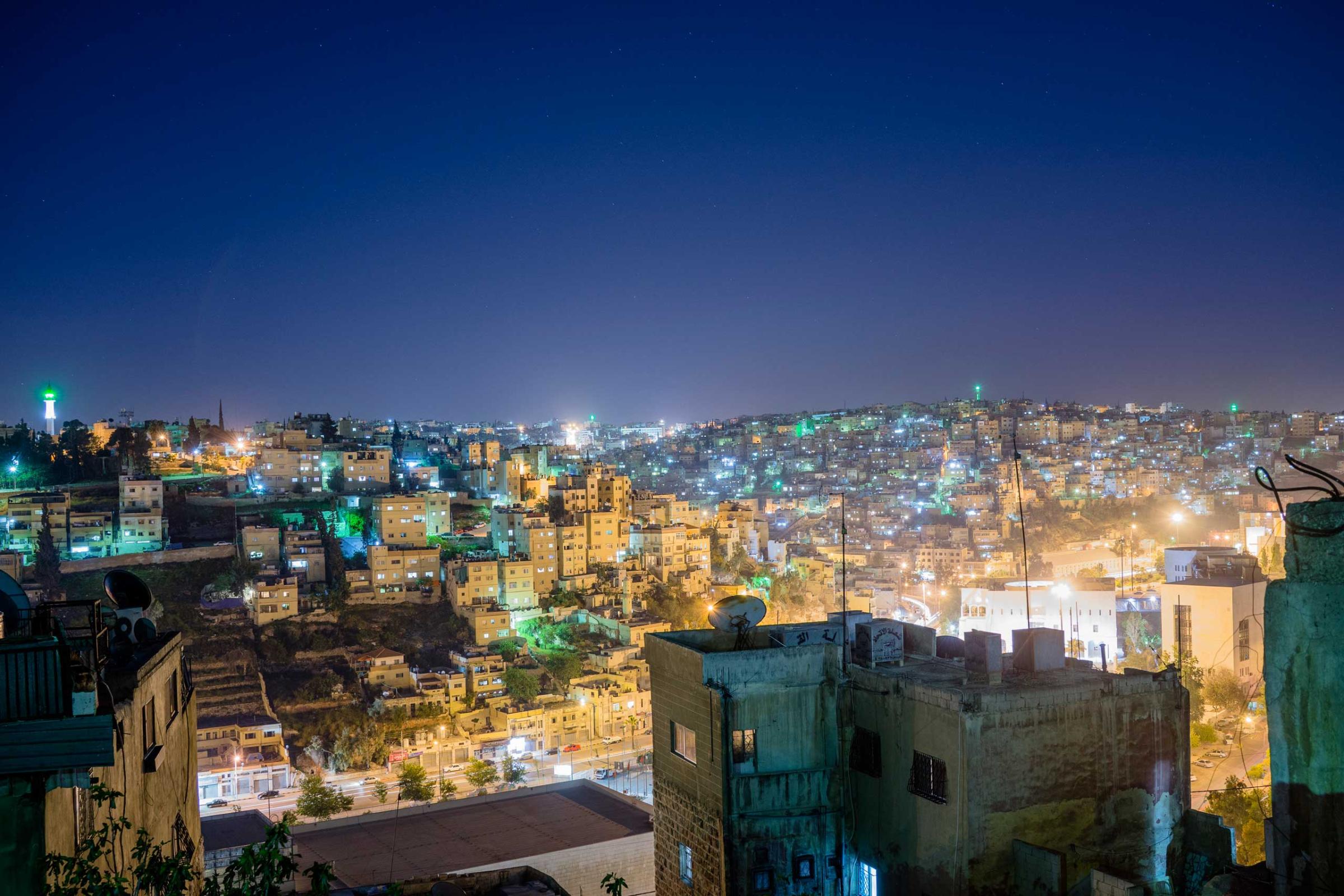
Alhakam Turki, a 23-year-old actor and writer for the Al-Basheer Show, believes that if more people knew the real truth about ISIS, they would not join the group. In one of the show’s most popular “commercials”—a takeoff of a well-known Snickers ad—a hungry ISIS fighter decides he wants to spread peace and love. After eating a candy bar, he regains his energy and remembers his true passion is blowing up people.
Critics might argue that satirizing such horrific atrocities is inherently offensive. The cast and crew of the Al-Basheer Show disagree—as would the 500,000 to 1 million Iraqis who watch every week. They see satire as an antidote that empowers comedians and their audience. “When you laugh about something that hurts, it’s a kind of recovery,” says producer Hussam A. Hadi.
“Making comedy out of horrific events also has another effect,” says Guy Martin, who photographed the cast and crew of the Al-Basheer Show for TIME. “It diminishes and weakens. It reduces power. It suddenly makes the world’s biggest bogeymen seem fallible.”
The crew, most of whom are Iraqi refugees, have bitter experience to inspire them. Al-Basheer, a Sunni, lost his father and brother to Shi‘ite militias in the Iraqi city of Ramadi in 2011. Hadi, a Shi‘ite from Baghdad, was kidnapped by armed extremists before he fled to Amman in 2006.
Though Iraqi state TV broadcasts its own ISIS parody, Dawlat al-Khurafa (Mythical State), the Al-Basheer Show has a harder edge. As well as mocking ISIS extremists, the crew’s own experiences of violence have inspired them to lampoon the regional politicians and clerics who fuel the conflict. It’s telling that they produce the show in neighboring Jordan, fearing their safety and freedom of expression would be compromised back home, but they still receive threats.
The young refugees hope to prove that humor can be a weapon in the fight against a group that relies on inspiring fear. But while they want a better, stronger country, even the comedians find it difficult to be optimistic these days. “People tell us, ‘We laugh while watching but then cry at the end,’” says Hadi. And as long as ISIS continues its own carnival of televised and tweeted brutality, the levity offered by comedy will only be fleeting.
With reporting by Rami Nazzal in Amman, Jordan.
Guy Martin is a freelance photographer represented by Panos.
Olivier Laurent , who edited this photo essay, is the editor of TIME LightBox. Follow him on Twitter and Instagram @olivierclaurent.
Naina Bajekal is a reporter for TIME based in London. Follow her on Twitter @naina_bajekal.
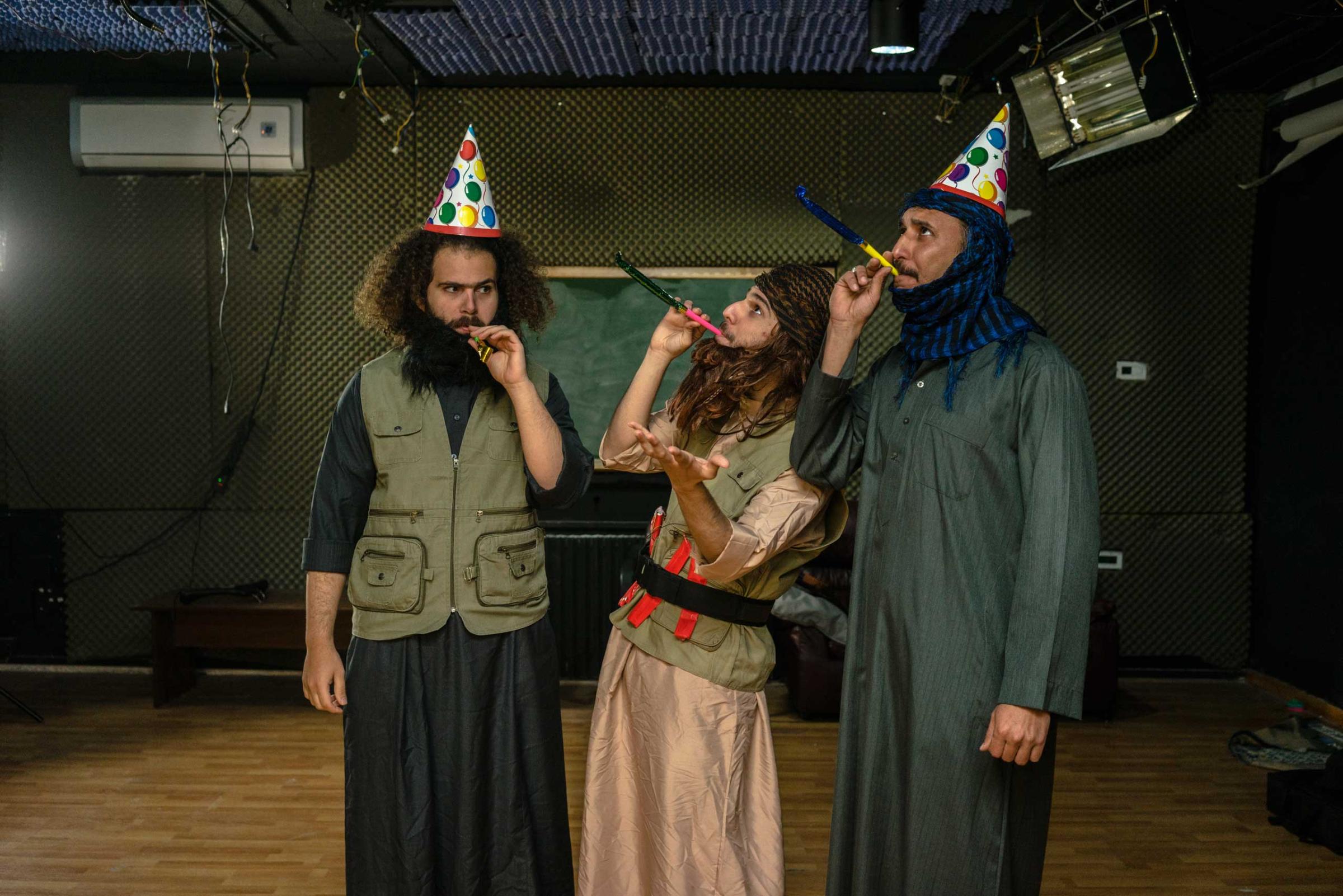
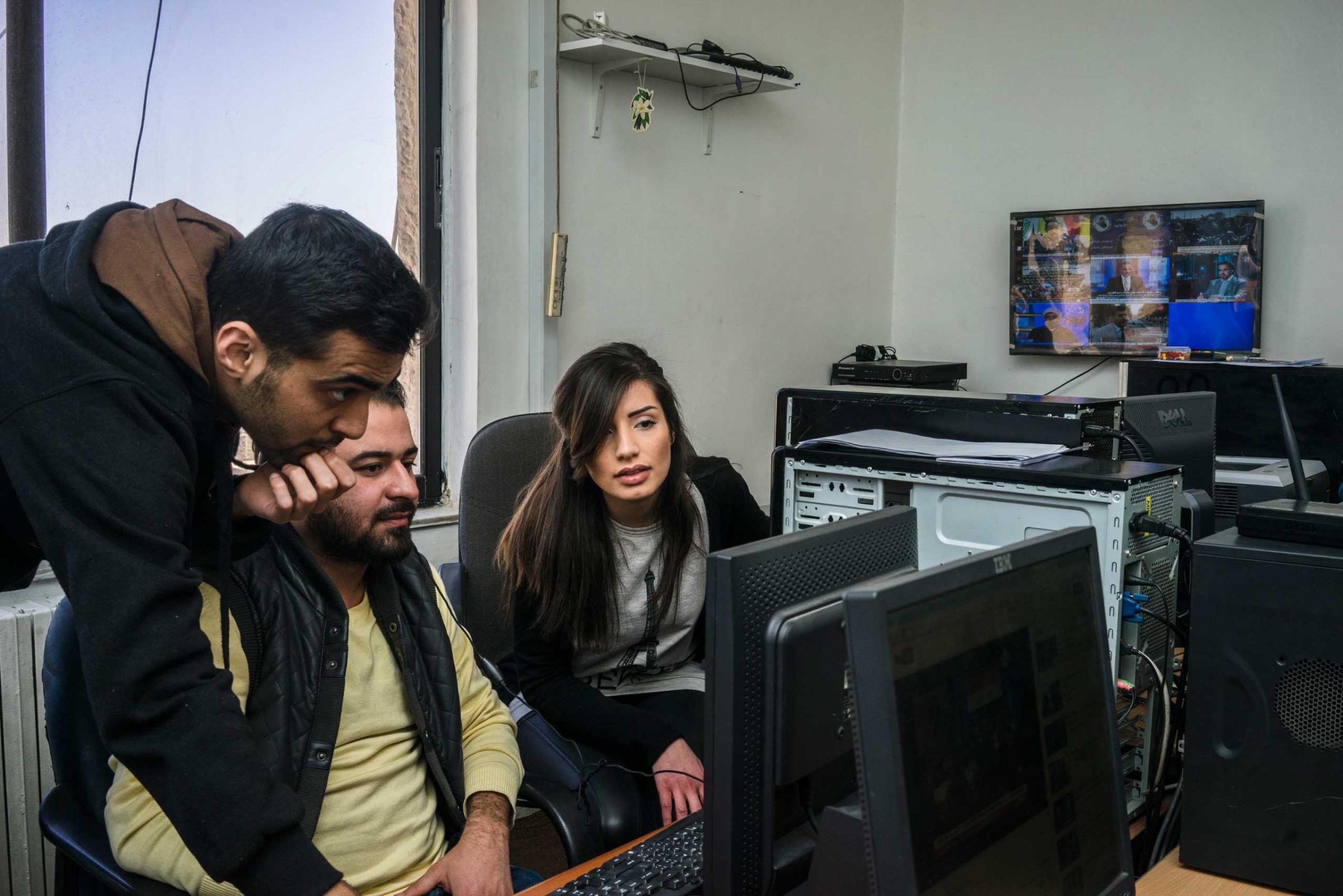
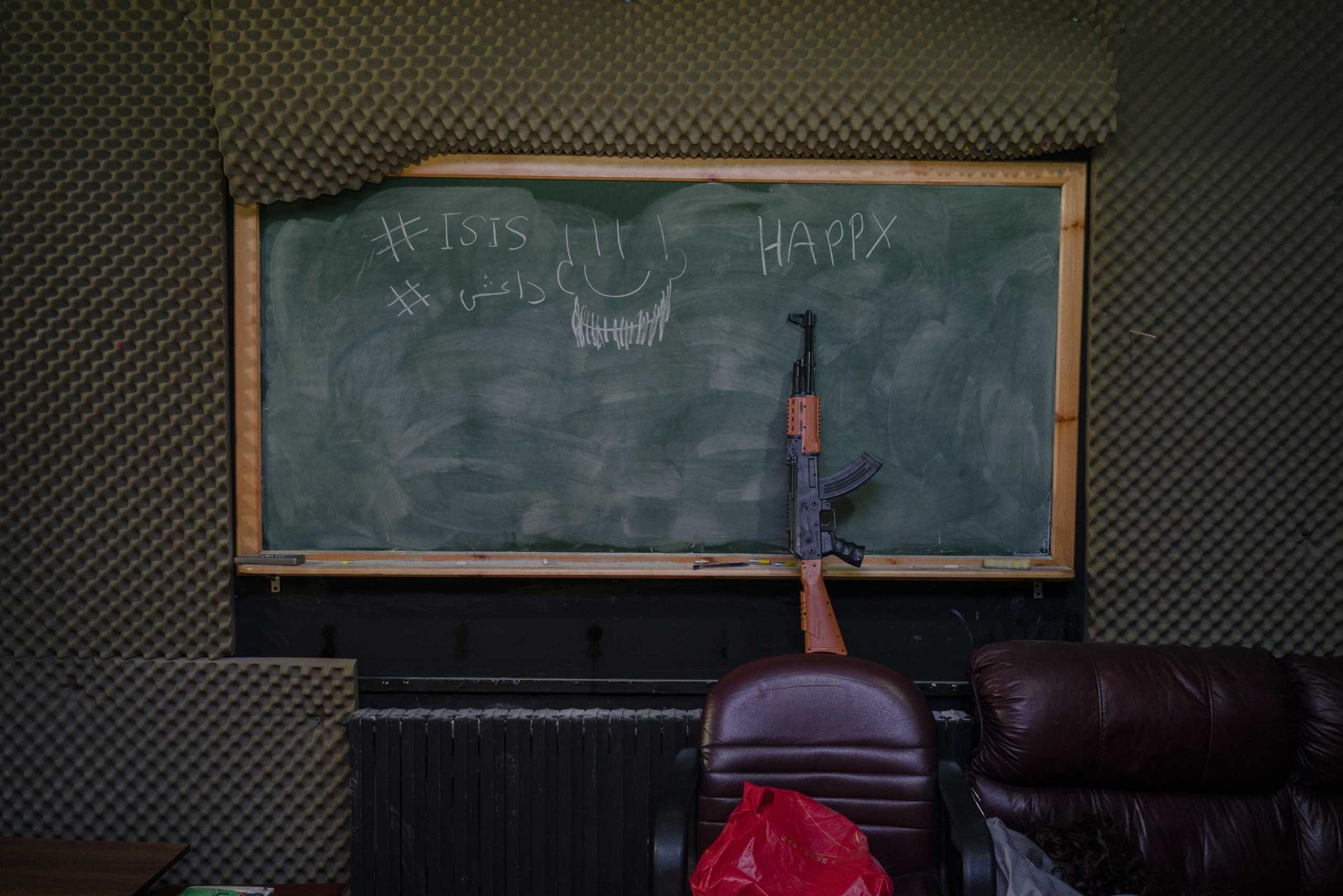
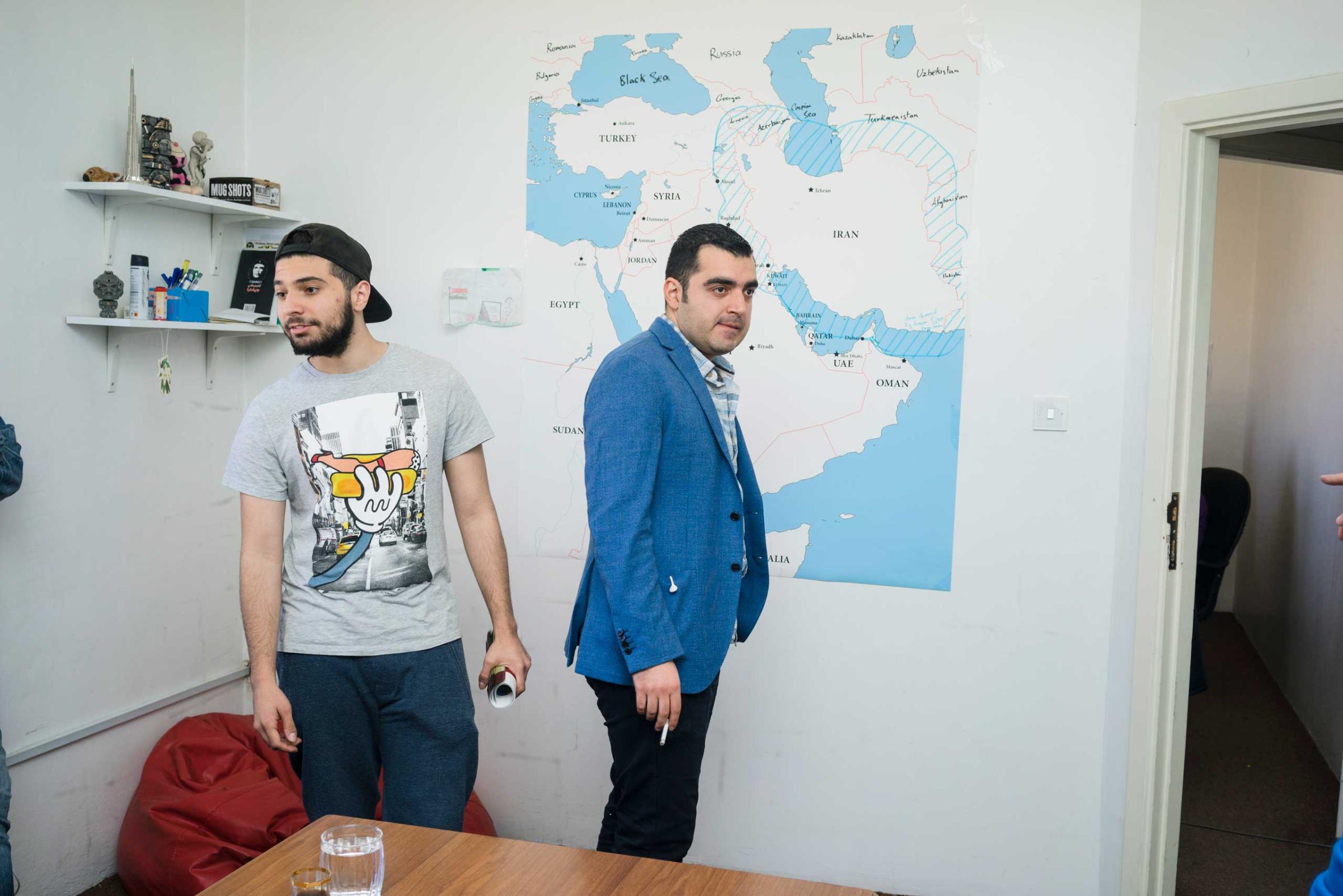
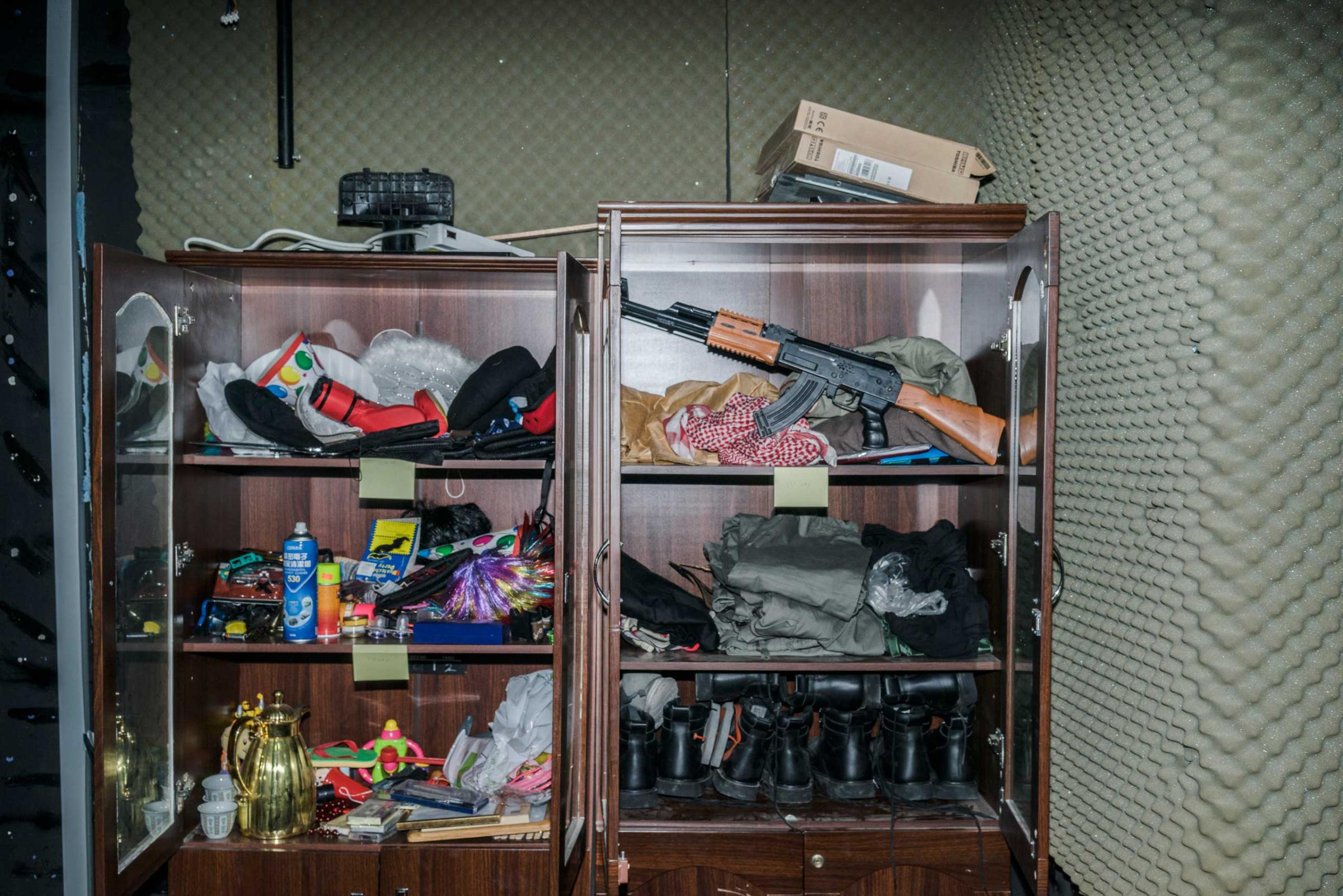
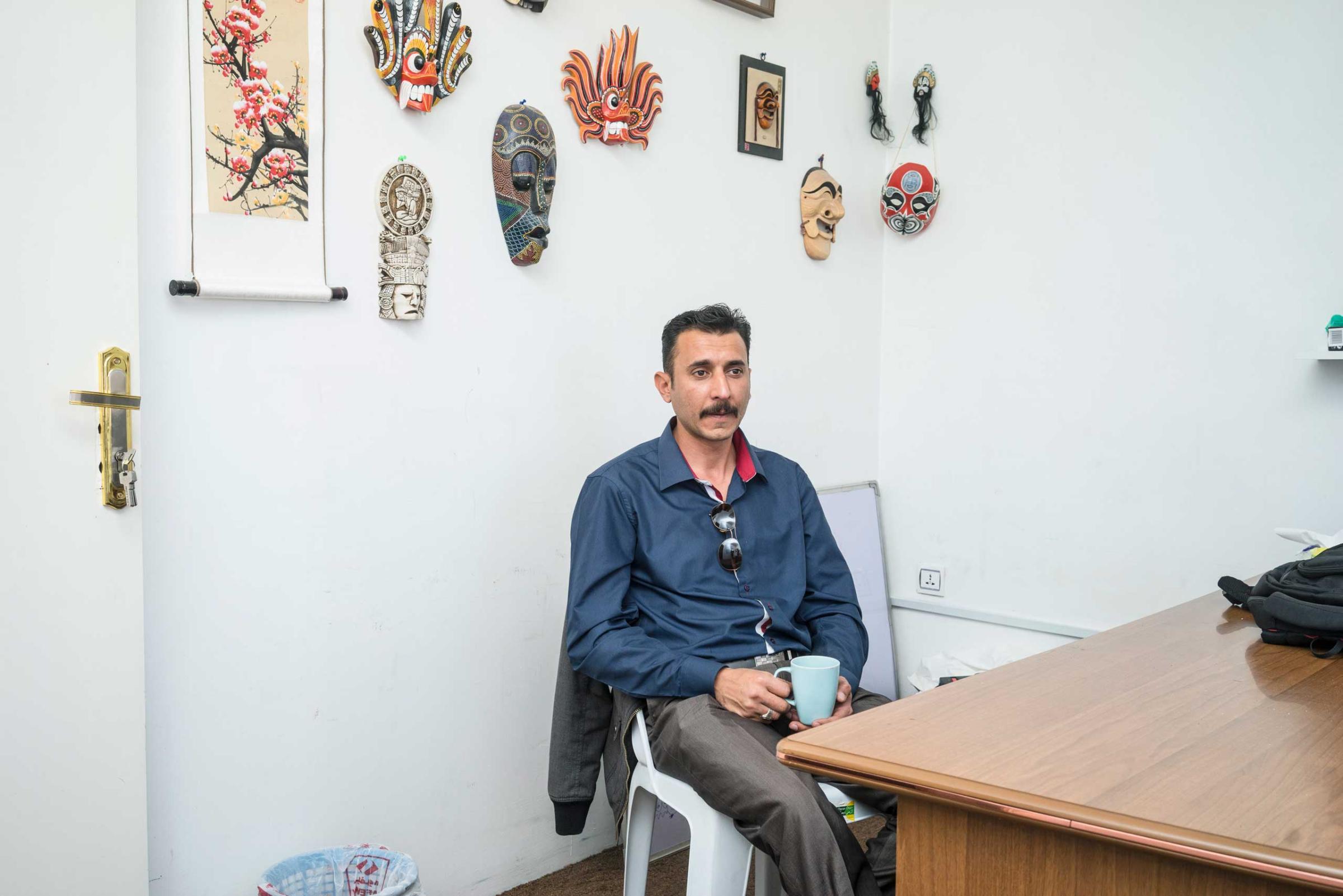
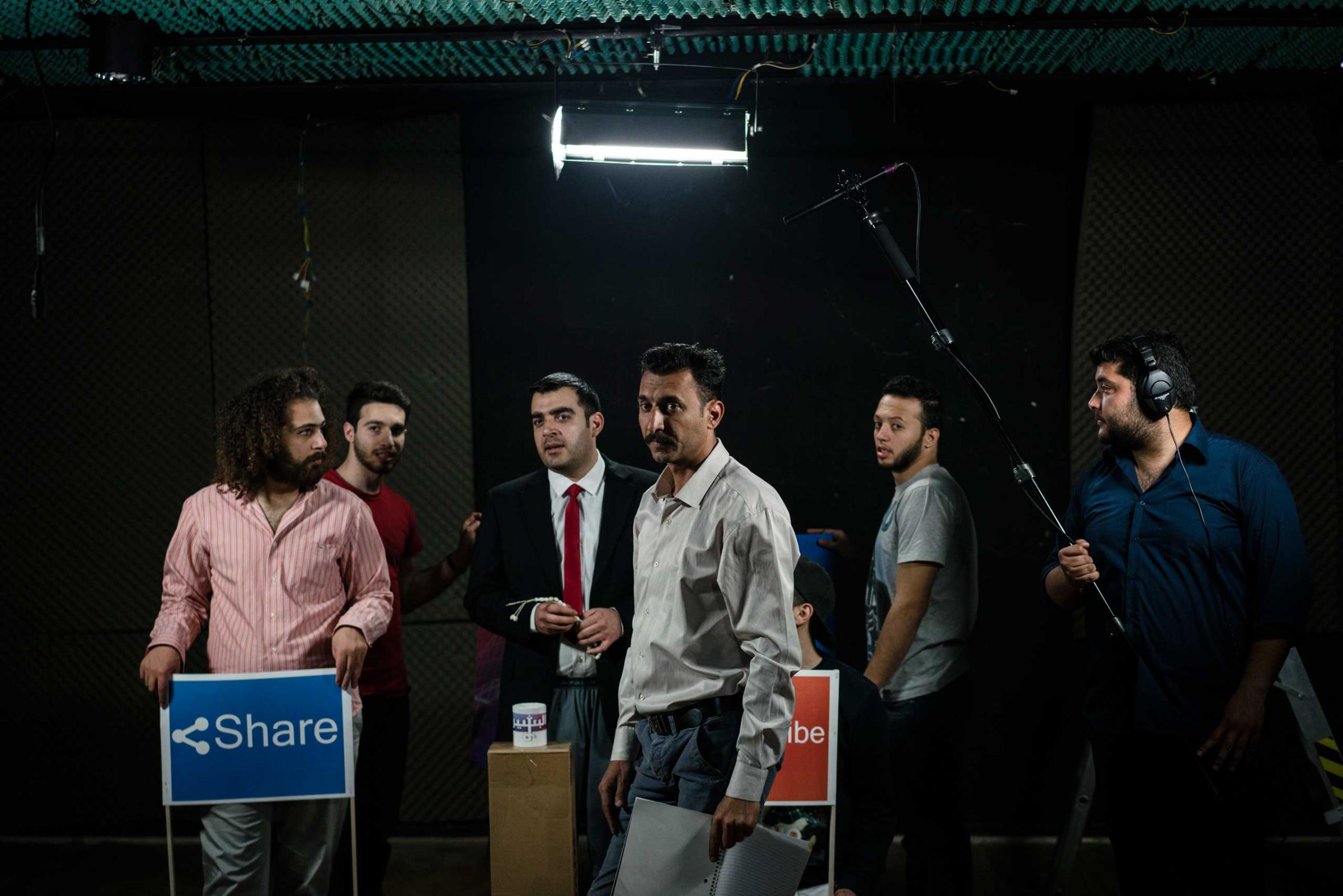
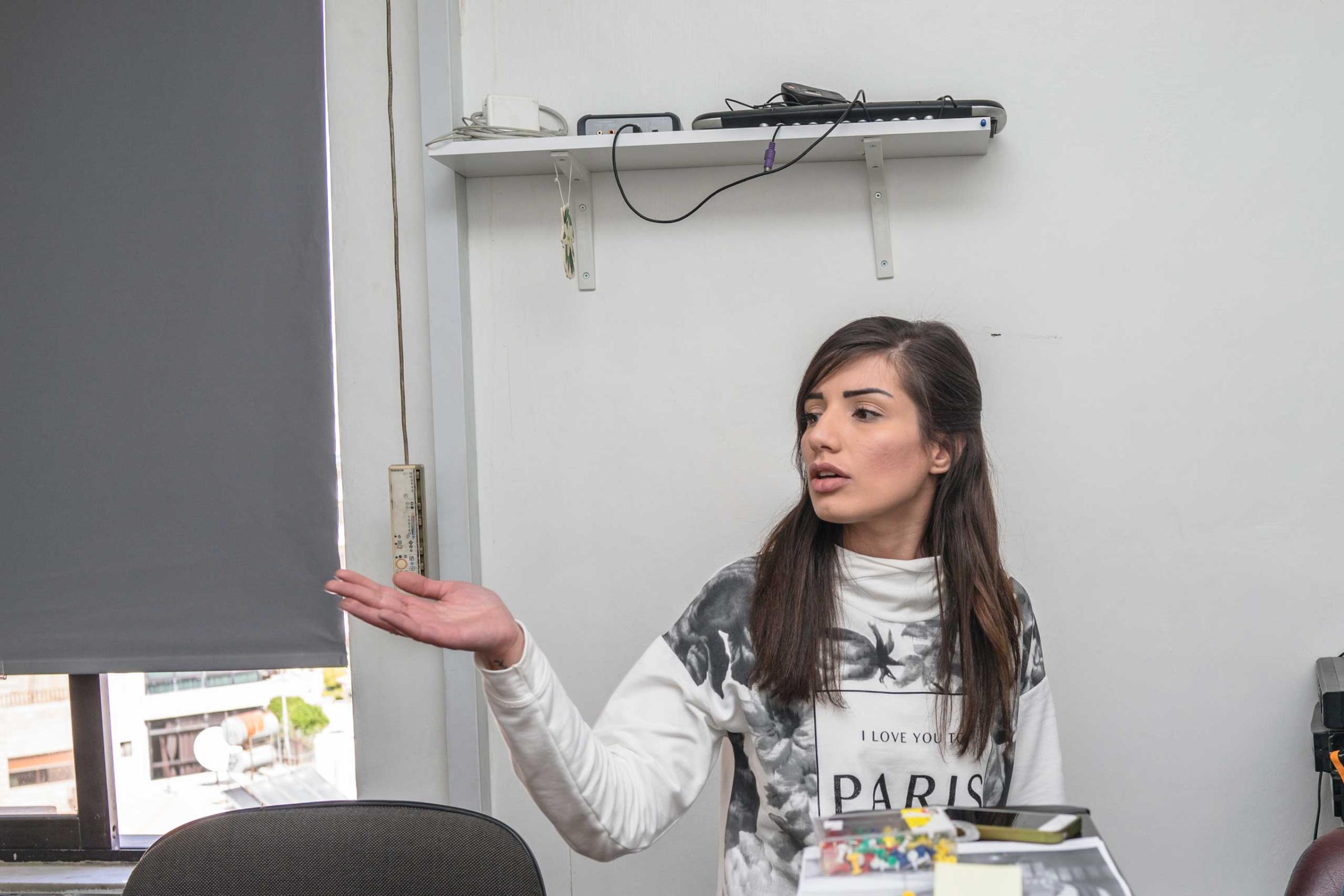
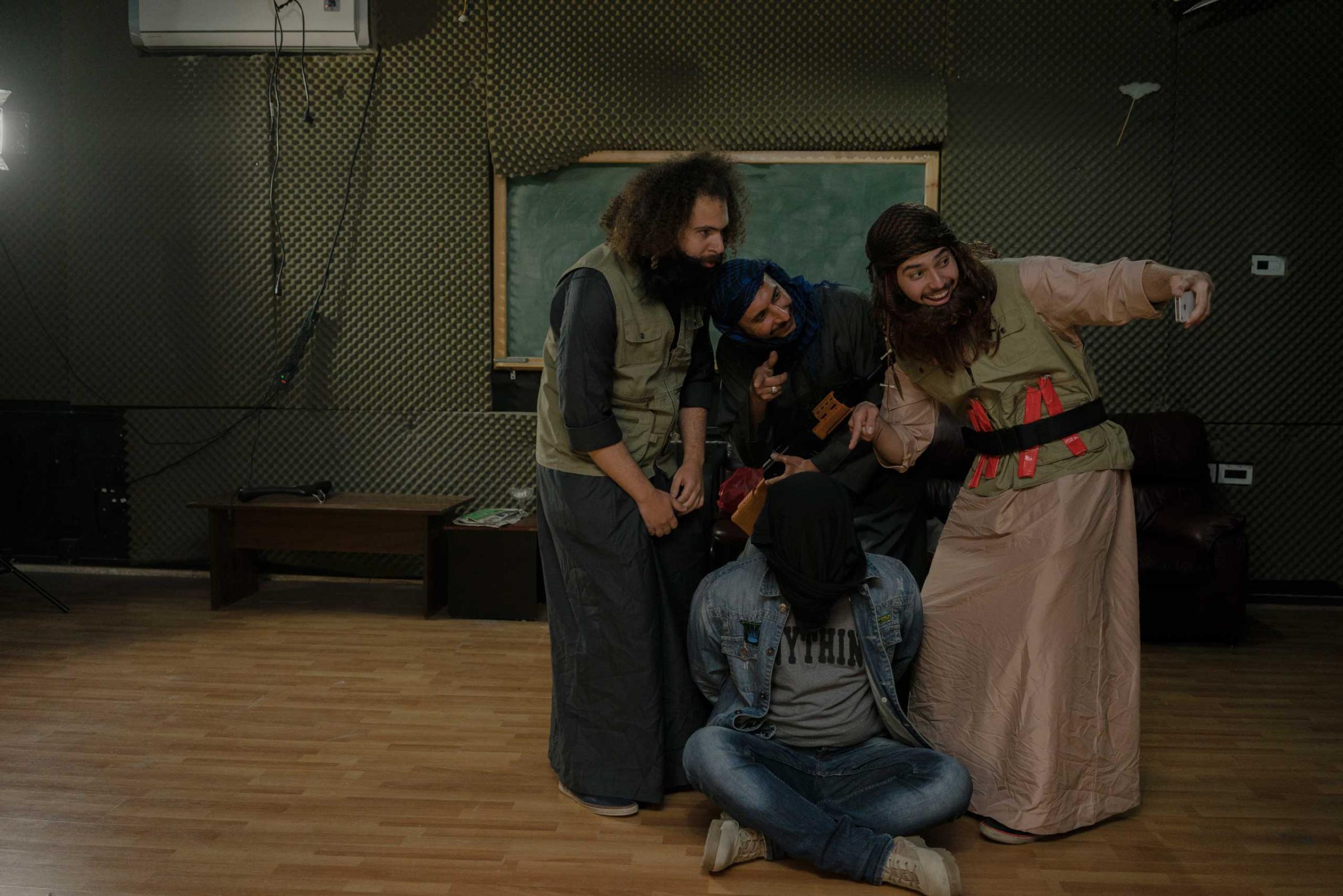
More Must-Reads from TIME
- Your Vote Is Safe
- The Best Inventions of 2024
- How the Electoral College Actually Works
- Robert Zemeckis Just Wants to Move You
- Column: Fear and Hoping in Ohio
- How to Break 8 Toxic Communication Habits
- Why Vinegar Is So Good for You
- Meet TIME's Newest Class of Next Generation Leaders
Write to Naina Bajekal at naina.bajekal@time.com